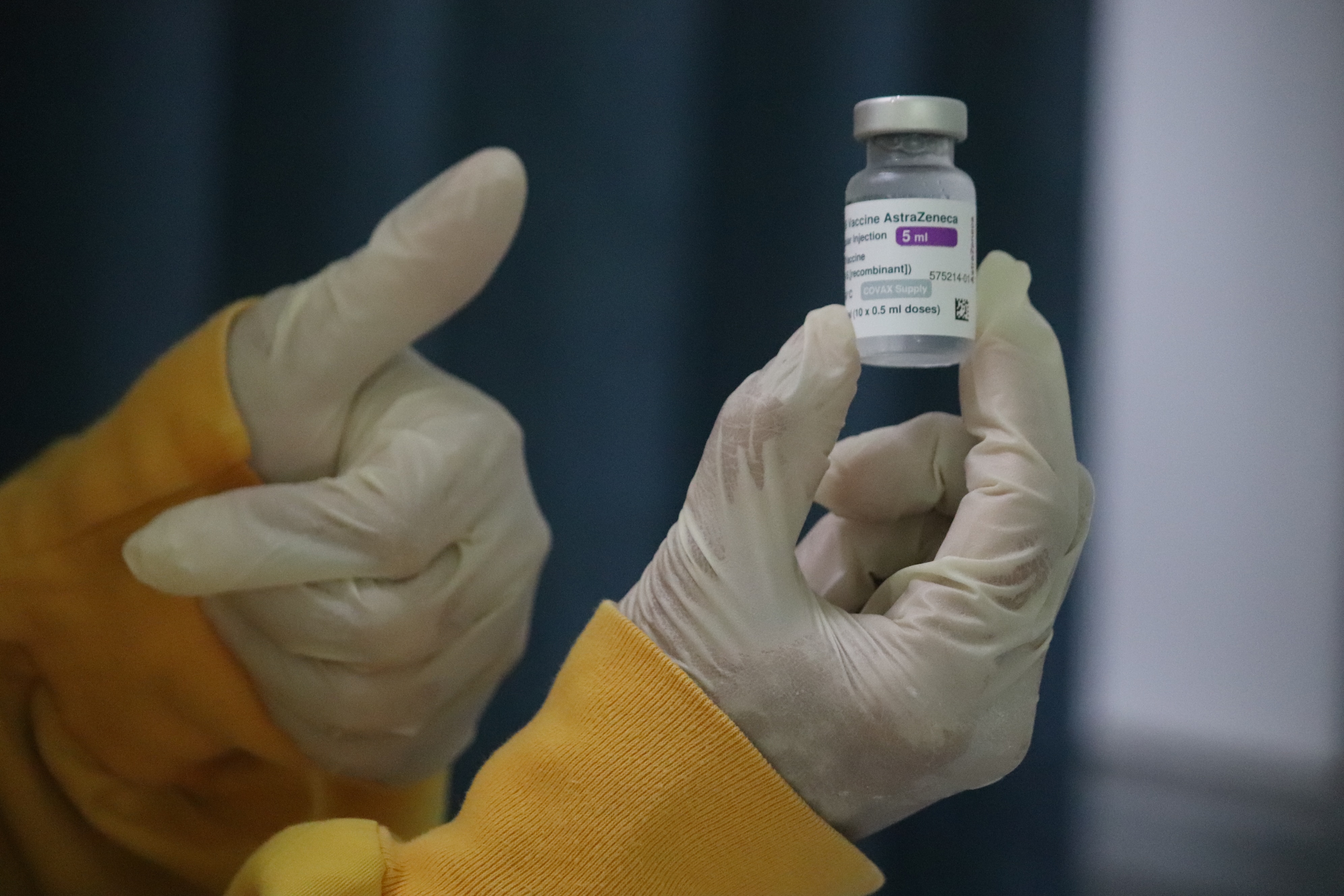Warning on risks: Financial contracts for difference are complex instruments and are associated with a high risk of rapid financial losses due to leverage. On 76.44% of retail investor accounts, financial losses occur when trading financial contracts for difference with this provider. You should consider whether you understand how financial contracts for difference work, and whether you can afford to take the high risk of suffering financial losses. Please read the Risk Disclosures.


AstraZeneca joins the race for weight loss drug
AstraZeneca believes the new drug could cause fewer side effects than current injectable treatments available on the market.
About AstraZeneca
AstraZeneca is an Anglo-Swedish multinational pharmaceutical and biotechnology company headquartered at the Cambridge Biomedical Campus in Cambridge, England. It has a portfolio of products for major diseases including oncology, cardiovascular, gastrointestinal, infectious, neuroscience, respiratory and inflammation. It is involved in the development of the Oxford-AstraZeneca COVID-19 vaccine.
Phase II trials start in the coming months
AstraZeneca, best known for its cancer medication and vaccine COVID, said the drug, branded ECC5004, has shown promise in Phase 1 clinical trials and will be developed for the treatment of obesity, type 2 diabetes and other cardiometabolic diseases.
AstraZeneca CEO Pascal Soriot said that Eccogene - named as ECC5004, which is currently in the first of three phase one clinical trials - is rapidly absorbed and therefore will not stay in the patient's stomach for long. This could reduce side effects such as nausea, diarrhoea, vomiting and abdominal pain associated with existing weight-loss drugs from Novo and Lilly.
A pill instead of an injection with lower production costs
The cost of producing the medicine is also expected to be lower than for injectable drugs because of its chemical composition. Soriot further pointed to the fact that ECC5004 is a small molecule compound, which means it is easier to manufacture than the complex injectable peptides that are the basis of Novo Nordisk's Wegova and Eli Lilly's Zepbound, which is also known as Mounjaro or tirzepathide.
Commenting on these characteristics, AstraZeneca's CEO said "We therefore also expect to be able to reach a much broader range of patients globally, including in low and middle income countries and China, where AstraZeneca has a strong presence with a pill that patients would take once a day. "
Weight loss drug race in full swing
AstraZeneca CEO Pascal Soriot admitted in a phone call to the media that his company was "several years behind" the rapid success of Novo Nordisk's (NOVOb.CO) rival drug from Wegova and Eli Lilly (LLY.N), which has been approved by U.S. and U.K. regulators.
The Anglo-Swedish group will pay $185 million upfront to license the obesity treatment from Eccogene, plus up to $1.825 billion depending on the clinical, regulatory and commercial progress Eccogene demonstrates.
The agreement between the two companies embodies the insatiable demand for obesity drugs that has catapulted Novo Nordisk (NOVOb.CO) to the position of Europe's most valuable company this year.*
AstraZeneca aims to beat rivals
AstraZeneca's CEO, Pascal Soriot, commented on the fact that his company is lagging behind competitors in the development of obesity drugs "But we are working on the next wave of products, and without citing the source of the statistic, he commented that about three-quarters of patients prefer a pill to an injection in the treatment of obesity.
ECC5004 is part of a class of highly effective weight loss drugs known as GLP-1 receptor agonists, currently dominated by pharmaceutical companies Novo Nordisk and Lilly. These drugs mimic a hormone produced in the gut that regulates blood sugar levels and appetite.

AstraZeneca's share price development over the last 5 years. Source: Tradingview.com*
Conclusion:
More than one billion people worldwide are overweight or obese. AstraZeneca is betting on an alliance with Chinese company Eccogene, in the fight against what could be called the global obesity crisis. Eccogene's drug - called ECC5004, which is currently in the first of three phase one clinical trials - is quickly absorbed and therefore won't stay in a patient's stomach for long. This could reduce side effects such as nausea, diarrhea, vomiting and abdominal pain associated with existing weight-loss drugs from Novo and Lilly.
Although AstraZeneca is only just catching up with its competitors, it is under pressure to deliver a better form of treatment that will potentially allow it to reach a wider range of patients.
Adam Austera, Senior Analyst at Ozios
* Past performance is no guarantee of future results